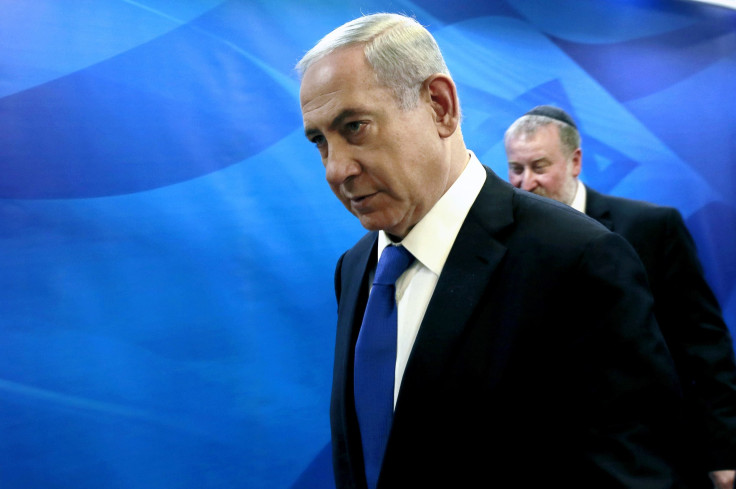Netanyahu's Belligerent Promises Could Further Isolate Israel Or Be Scrapped For More Moderate Stance

ISTANBUL -- If newly re-elected Israeli Prime Minister Benjamin Netanyahu pushes two main issues he ran on during his campaign, analysts say he could further isolate his country from its staunchest ally, the U.S. Netanyahu boldly stated during his campaign that if he were elected to a fourth term he would prevent the formation of a Palestinian state and would actively work to halt the West’s negotiations with Iran. Both campaign promises, if upheld, would go against what the White House has worked for years to develop. Yet in the Middle East, some Israel watchers expect Netanyahu to govern from a more moderate stance than his comments before the vote indicated.
One unidentified official from a Gulf state was quoted as saying Netanyahu won the election Wednesday only because of growing domestic fears of a nuclear Iran -- but added that in the Middle East, Israel watchers actually expect him to be less belligerent once in office.
"With Iran emerging again, it was highly expected that Netanyahu would win," the Gulf Arab official said in an interview with Reuters. "There's a feeling in the Gulf that some of his tough stances could be loosened later, especially if there is a convergence of views in the region around Iran."
In his speech before the U.S. Congress earlier this month, Netanyahu angered the White House by showing up invited by Republicans and slamming the possibility of a deal with Iran. He denounced the Tehran regime for embracing what he called “militant Islam,” pushing the escalation of its nuclear program with the intention of getting weapons that could destroy Israel and further destabilizing the Middle East. Democratic leader Nancy Pelosi called Netanyahu’s speech "condescending." President Barack Obama said that Netanyahu’s speech contained "nothing new."
Negotiations in Geneva between Iran and six Western powers led by the U.S. are inching toward a possible deal in which Iran would freeze its nuclear energy program in exchange for a lifting of sanctions. The deadline for a deal is March 31, and officials on both sides of the negotiations are still working to reach an agreement. Netanyahu's belligerence on the issue, while popular with Republicans in Washington, has earned him no goodwill among Obama's circle. David Axelrod, formerly Obama's closest adviser, tweeted as polls closed that Netanyahu's "shameful demagoguery" had won him the election.
Leaders in the Middle East have not publicly commented on Netanyahu’s re-election. So far they have maintained a policy of public silence on any Iran deal; while a nuclear Iran would threaten first and foremost its neighbors, regional governments have remained silent lest they be seen as agreeing with Israel. But behind the scenes, in many regional capitals there is a shared concern with the Israeli leader about nuclear weapons in Iran.
Netanyahu's hawkishness on a Palestinian state is a different matter.
The prime minister promised on the last day of his campaign that he would block the formation of a Palestinian state, the direct opposite to what Obama has said during his time in office. The White House's position is that a two-state solution is vital for peace in the Middle East. Netanyahu has continuously sparred with Obama on the issue, but his recent statement, made on Monday as pre-election polling showed him trailing and looking desperate for a move that would save his campaign, is only adding fuel to that fire.
Palestinian officials were quoted Wednesday morning as saying voters in Israel chose "occupation and settlement building" by electing Netanyahu.
"Israel chose the path of racism, occupation and settlement building, and did not choose the path of negotiations and partnership between us," senior Palestine Liberation Organization official Yasser Abed Rabbo told Agence France-Presse.
Arab governments are far more likely to be vocal about the fate of statehood for their fellow Arabs in the Palestinian territories than about Iran. Last summer's war fought by the Israeli army in the Gaza Strip, in which more than 2,100 Palestinians were killed, drew universal condemnation from the Arab world. That condemnation is likely to continue should Netanyahu actively bloc Palestinian statehood -- but the Israeli prime minister may choose to tone down his rhetoric now that he has won office again.
Gidi Grinstein, founder of the Israeli think tank Reut Institute, expects him to veer toward a more moderate stance on the Palestinian issue. “In the end," he told the New York Times, "I would not rule out his going back to the two-state solution."
© Copyright IBTimes 2024. All rights reserved.




















